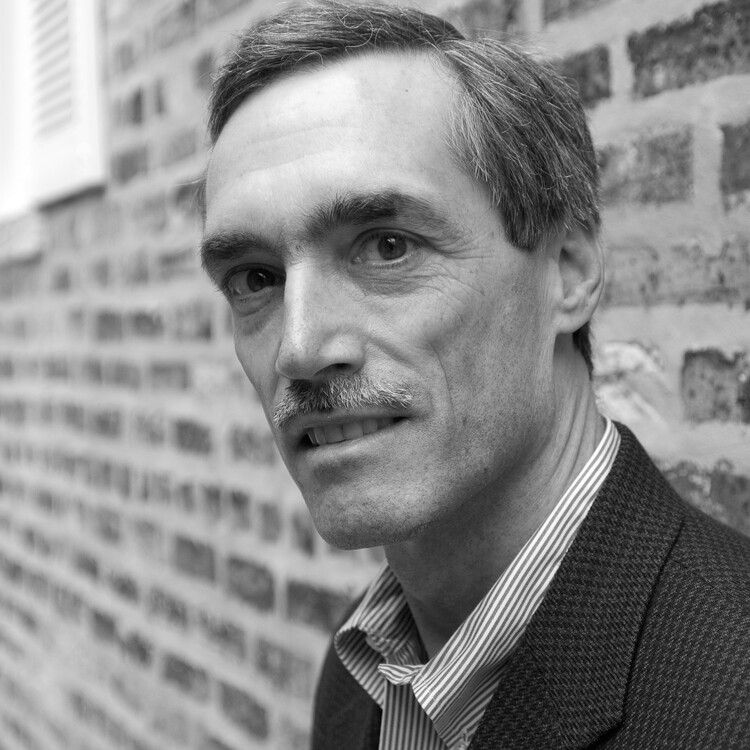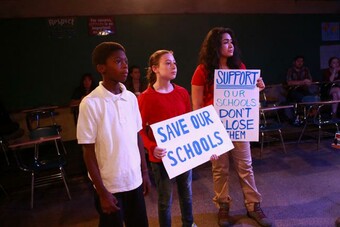Your Guide to Theater Education
The Theatre School at DePaul University
In this series, David Dudley looks at the different models of theater education around the country through interviews, with the hopes that a new student will have an easier time finding the model that works for them.
The Theatre School at DePaul University has been around for a long time. It's no wonder, given that they offer degree programs in nearly every discipline one could hope for, from playwriting to directing, scenic design to arts management, costume design to dramaturgy, one can acquire a top-notch education at DePaul, where theory and practice are afforded equal emphasis.
This round, I interview John Culbert, Dean of The Theatre School at DePaul.
When was DePaul's program started?
The Theatre School at DePaul University was founded as the Goodman School of Drama in 1925 at the Art Institute of Chicago. Our history began with three seemingly separate events occurring in Chicago in the early twentieth century: DePaul’s Department of Drama was created, the Merle Reskin Theatre was built, and young playwright Kenneth Sawyer Goodman’s passion for theater lead to his memorialization in a school and a professional theater. The school moved to DePaul University in 1978 and then a few years later became The Theatre School.
What does DePaul's program offer potential students?
The Theatre School adheres to a “learn by doing” philosophy. Every student is guaranteed multiple high quality, discipline-specific production experiences where classroom theories are applied in practice. Students engage with a broad scope of literature including canonical, contemporary, and original works that embody diverse aesthetic, cultural, spiritual, and ideological perspectives, preparing them for a field increasingly invested in global concerns. In addition to specialized training, The Theatre School strives to develop the whole individual by encouraging students to access the myriad learning opportunities available to them at DePaul and in Chicago.
What makes DePaul's program different from others?
The Theatre School makes the most of its location in the heart of Chicago’s remarkably diverse theater community by cultivating nationally recognized theater practitioners as faculty. The many faculty members nurture close relationships with students through a hands-on, personal approach to mentorship. In addition to bringing vast real world experience to the classroom, TTS faculty provides students entering the profession with robust networks in Chicago, nationally, and internationally. TTS students experience valuable interactions with notable professionals at all levels through internships, apprenticeships, and guest artist visits.
What are the guiding principles of the program?
Education: The Theatre School is primarily a place of learning and for the making of humanity. It is a place for the moral, spiritual, social, political, and artistic development.
Respect: The Theatre School engenders respect for self, for others, for learning, for alternative communities, and for the profession itself.
Freedom: The Theatre School encourages creativity and freedom of expression as a part of our commitment to our professional standards and responsibilities. We strive to create an atmosphere that is conducive to exploration and risk-taking.
Imagination: The Theatre School celebrates the primacy of the imagination in all its work.
Spirituality: The theater is, in a real sense, a sacred place for reflection, awakening, visioning, and the development of moral awareness. It is a place to challenge beliefs and to understand the self in relation to others.
What's working?
The training is working. Our students are consistently employed in every facet of theater from backstage, to onstage, from the front of house to the administrative offices. Our students are creating new work, new companies, and new approaches to the creation of performance, and to the ways in which they achieve their educational, personal, and professional goals.
What kinds of challenges have you faced? How do you intend to approach them in future?
The Theatre School’s challenges often lie in the ambitious plans of our students, faculty, and staff. We are often overextended with the large number of production activities that we engage in each year. We are also trying to determine and to best utilize our new facilities, both for outside groups and for our own community.
What's missing from the current education/ training programs available?
Often times, students in theater programs are completely prepared with skills for their specific careers, but the inspiration behind the skills may be less defined. How will they use their theater artistry and skills to impact the world? Why do they need to do theater? Why do we need theater at all? It is the answers to these questions that will provide the drive to do their very best work through the ups and down of working as an artist, technician, manager writer, etc.
Who do you feel is the ideal candidate? Who are you trying to bring into the DePaul family?
This answer varies between the undergraduate and graduate programs. For the undergraduate programs, we are looking for the students who are driven and know that they want a career in the theater arts at an early age. These students are open, flexible, and willing to expose themselves to new points of view and ways of learning. Our graduate students are professionals who have been working in the profession but want to hone their skills and artistry to become an expert actor, director, and arts leader.
What do you hope your graduates/ trainees do, once they complete the program?
Change the world! Inspire us all! Use their artistry and skills to have an impact! Make a living! Be active citizens of the world! We hope they apply their theater-learned artistry and skills in whatever avenue they choose, in the theater/entertainment field, in the arts, or as bankers, business people, judges or teachers. In the big picture TTS graduates value professionalism, creative problem solving, critical thinking, collaboration, and service.
Any changes planned for the future?
We strive to create enough flexibility in the curriculum to be able to work across disciplines, both within The Theatre School and across the university. We seek ways to provide a global experience to our students.







Comments
The article is just the start of the conversation—we want to know what you think about this subject, too! HowlRound is a space for knowledge-sharing, and we welcome spirited, thoughtful, and on-topic dialogue. Find our full comments policy here
Thanks for the series. It is very helpful
Glad to hear it, Jamil. Thanks for reading.